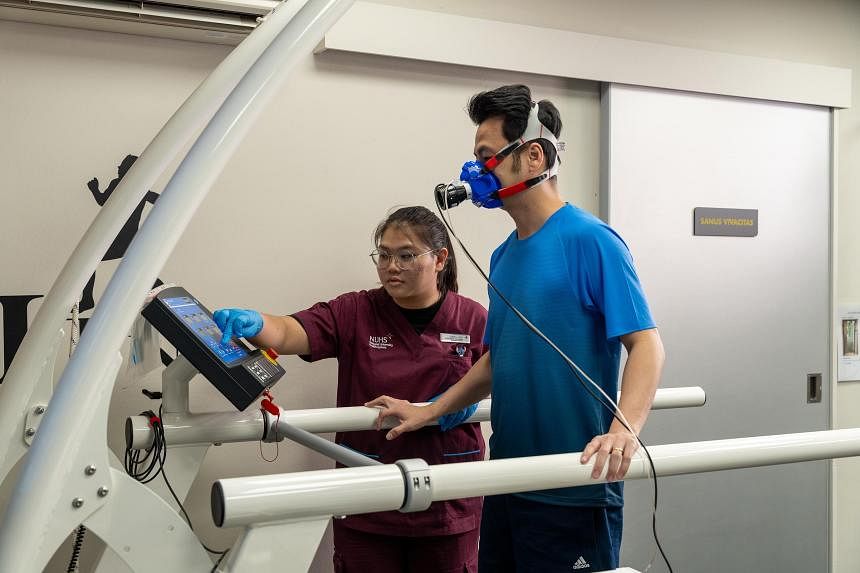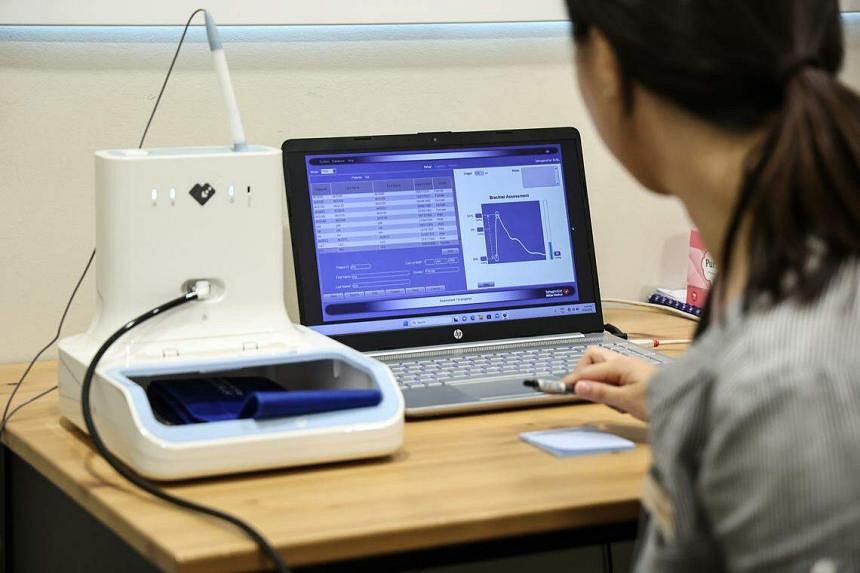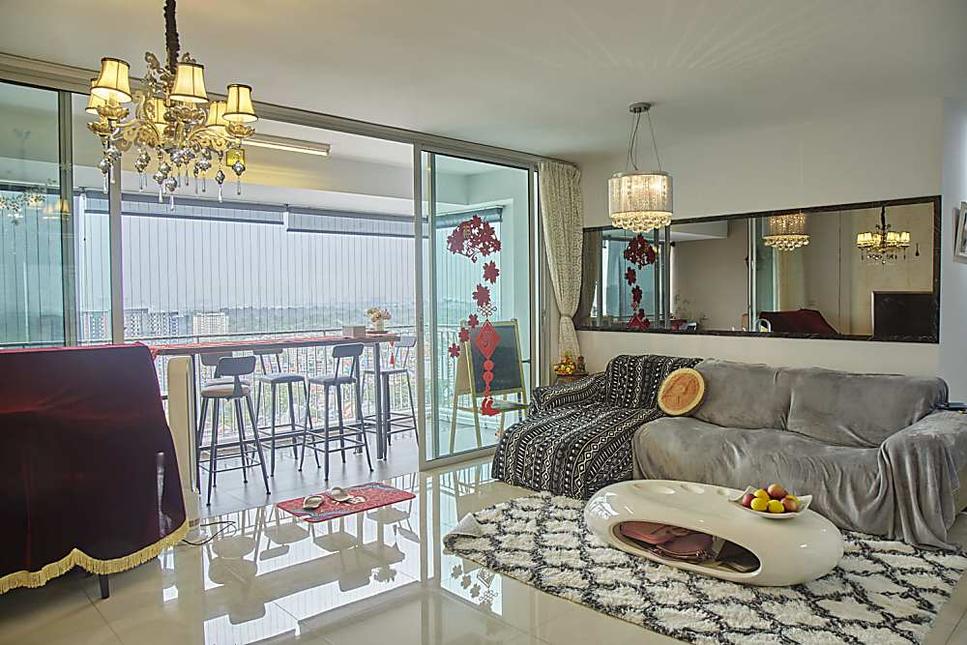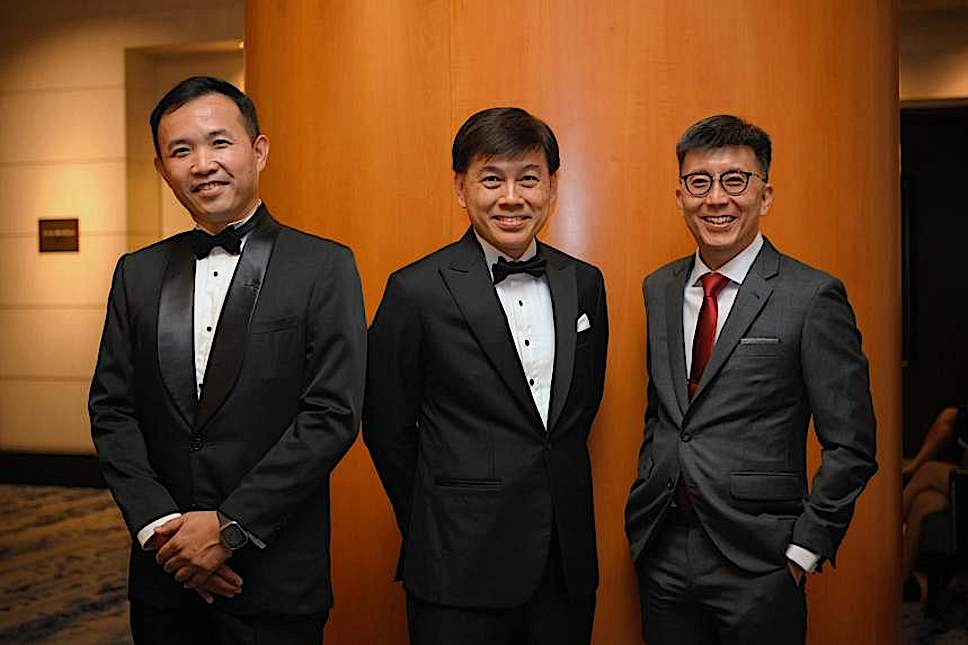Longevity clinic opens at Alexandra Hospital to help Singaporeans spend fewer years in ill health

SINGAPORE - The preventive healthcare path that Singapore is taking received a boost on Thursday with the opening of a longevity clinic at the Alexandra Hospital (AH) – the first in the world to be located in a public setting.
The clinic will give patients who are well access to customised healthcare plans to help them live longer and healthier, and specialised care, if they need it.
The opening of the clinic comes amid a push in Singapore towards early intervention in healthcare initiatives. Healthier SG, which was launched in July 2023 for residents aged 60 years and above, emphasises preventive care to keep people healthier.
Speaking at the clinic’s launch, Professor Kenneth Mak, the director-general of health at the Ministry of Health, said the Government, like those in other developed nations, is focusing on the demographic challenges in ageing and investing in the field of longevity medicine.
“We are very determined that we must do something about it... The launch of the healthy longevity clinic is just one of many endeavours.
“We’re very happy to see our healthcare system step up with ground-up endeavours, which we believe are taking the right steps to putting in place a framework that supports healthy living,” he said.
At longevity clinics, patients can take tests to define their biological age and get personalised plans, which aim to help them slow down the ageing process.
Biological age, which is the rate at which one ages, is a better indicator of health span, than the number of years that one has lived. It is influenced by not just genetics, but diet, exercise, sleep and biomarkers like blood sugar levels.
Prof Mak said Singaporeans are living longer, but added that the gap between lifespan and health span – the length of time a person stays healthy – remains the same, at around 10 to 11 years.
“We want... to narrow that gap so that we have fewer years in ill health. And that’s why this is very important, because it resets the conversation, talking about the interventions you want to do before we talk about people becoming frail… people developing dementia,” he said.
The clinic at AH will charge patients between the age of 35 and 70, who have no more than one stable chronic disease, between $1,500 and $3,000 to undergo various tests.
They include blood tests to look for epigenetic biomarkers of ageing, known as the epigenetic clock, and stool tests.
“It’s nowhere near being fully subsidised... but we are working towards that... and that’s only possible in a public healthcare setting,” said cardiologist Laureen Wang, the clinic’s director and the head of AH’s Well Programme.
She added that locating it in a public hospital means it would be supported by the various specialities.
“When we start screening people and start doing all these tests, I’m sure we will pick up abnormal results,” said Dr Wang.
A multi-disciplinary team including doctors, nurses, allied health professionals and health coaches will review the results and develop a customised health plan with dietary and lifestyle recommendations.
There will be opportunities for those who visit the outpatient clinic to take part in ongoing clinical trials, to see if nutritional supplements work effectively and safely in promoting healthy longevity.
The clinic provides regular health-coaching sessions, telemonitoring and access to digital health monitoring tools to ensure ongoing support and consistent tracking of progress.
The clinic at AH is a part of a longevity ecosystem that was set up by National University Health System (NUHS), with the aim of increasing the health span of residents here by three years in a decade’s time.
The clinic is co-located with the NUHS Centre for Healthy Longevity (CHL), which was launched last September.
This centre is one of the world’s first to conduct research on ageing in both animals and humans, develop new biomarkers for ageing and set out protocols for other interventions including dietary supplements, exercise programmes and lifestyle modifications.
The NUHS cluster is also looking at ways to bring longevity medicine into the Health District @ Queenstown, a healthy ageing pilot, said Mr Chua Song Khim, the deputy chief executive of NUHS, whose responsibilities include population health.
Professor Andrea Maier, who leads the CHL, said the centre is working with the team behind the district.
“We really would like to focus on individuals who have the greatest need for interventions and to invite them to come, for example, to not only our trials but also to the health longevity clinic,” she told reporters.
Healthier SG is envisioned as part of the longevity ecosystem. Prof Mak said the clinic at AH could be among the suite of offerings that general practitioners can refer some individuals to.
Field of medicine
The longevity clinic’s opening comes amid rapid advancements in longevity research.
“In the past five years, we really discovered that we can now measure the biological age of individuals,” said Prof Maier, a prolific geroscience researcher who was invited to lead CHL with Professor Brian Kennedy, who is widely recognised for his research into the biology of ageing.
At CHL, researchers are working with the biggest cohort studies at this moment, including the Dunedin study in New Zealand and Britain’s Biobank, to see if the ageing biomarkers used there would also work for Singaporeans, she said.
“We are testing lifestyle interventions, how much sleep do you need, how much physical exercise to which supplements are good. We also judging the quality of supplements,” said Prof Maier, who founded the Healthy Longevity Medicine Society last year to promote longevity medicine.
She said there is currently no consensus on the evaluation and validation methods for biomarkers of ageing, which refer to scientifically measurable parameters of the ageing process.

However, work is being done now to ensure that a robust framework is put in place in the future.
Dr Shyam Bishen, the head of the Centre for Health and Healthcare at the World Economic Forum, told the audience that among other things, WEF is focusing on dementia and Alzheimer’s disease.
New drugs, interventions and methods to stop or slow the progress of dementia and to treat Alzheimer’s disease are being studied, he said.
Longevity centres in public settings are also coming up overseas, with the Sheba Longevity Centre in Israel opening next month, and the Mayo Clinic in the United States expected to open one later, said Prof Maier.
Read the full story for $0.99/month
Save more than 90% on your subscription and get over 500 subscriber-only articles every month.
ST All-Digital Package - Monthly
$29.90 $0.99/month
No contract
$0.99/month for the first 3 months, $29.90/month thereafter. T&Cs apply.
Unlock these benefits
Get subscriber-only articles on ST Web and app
Easy access on up to 4 devices
2-week e-paper archive to ensure you never miss out on news that matters to you
Join ST's WhatsApp Channel and get the latest news and must-reads.






No comments:
Post a Comment